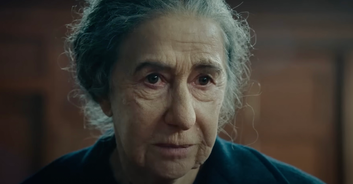Wendy Williams, once the vivacious queen of daytime talk shows, has recently found herself making headlines for more heartbreaking reasons.
Following the announcement that the 59-year-old has been diagnosed with primary progressive aphasia and frontotemporal dementia, Lifetime's new docuseries Where Is Wendy Williams? - which was originally intended to document her anticipated comeback with a new podcast -instead offers a candid and concerning look at her declining health and struggles with alcoholism.
The series, spanning two nights and over four hours, paints a stark contrast to the image fans remember from her talk show days.
Rather than showcasing a triumphant return, viewers are confronted with scenes of Williams behaving erratically and lashing out at her assistants.
In one particularly uncomfortable moment, she abruptly criticizes her assistant, saying, "I wish you would get liposuction."
Another scene depicts her confusion and frustration outside of a vape shop, where she becomes disoriented and berates her driver and publicist.
The concern for Williams's well-being is palpable, with her driver expressing genuine worry about her deteriorating condition. "From when I first met Wendy, she had a beautiful personality. Now, it's just like, I don't know what the hell is going on," he shares. "I think she's losing memory. Have you guys noticed that?"
The scenes have led to a mixed response from viewers, with some still attempting to shame Williams for the manner in which she could be seen speaking to her team.
"Dementia or not, this not how one should be treating people. Period," one person tweeted. "Being nasty to assistants is just horrible. Eish, Wendy Williams."
However, others quickly responded in defense of the star, explaining that people battling dementia suffer from many symptoms - including mood swings and trouble controlling one's behavior.

"Dementia affects not just memory but behavior. It’s important to read about what it is before you condemn someone," one person responded.
A second added: "Believe it or not, dementia isn’t pretty and doesn’t come with manners and niceties. Sometimes it comes with aggression, violence, and confusion."
"Dementia and Alzheimer’s usually change basic personality traits. Some can turn super sweet and childish, while others turn angry, mean and demanding," a third attempted to explain. "Think about how frustrating it is to realize you have a medical issue happening to you and trying to do everything you can to hang on to your mind and body, but it’s slipping away."
The World Health Organization explains that people with dementia can "experience behavior changes such as aggression that are distressing to the person with dementia as well as those around them." (For more information, please click here.)
Other viewers questioned the moral and ethical implications of continuing to release the documentary - with some believing that it was exploitative given the star's declining health.
Prior to the documentary airing, one person tweeted: "What are we going to see on the new #WendyWilliams doc that airs tomorrow night on Lifetime? With her serious health issues, I think this is exploitation."
A second agreed, replying: "It is totally ethically wrong to exploit a person who has now been diagnosed with a delibating disease as Wendy Williams has been."
Williams has since issued a statement thanking her fans for their support following her diagnoses.
"I want to say I have immense gratitude for the love and kind words I have received after sharing my diagnosis of Aphasia and Frontotemporal Dementia (FTD). Let me say, wow! Your response has been overwhelming," Williams said.
She continued: "The messages shared with me have touched me, reminding me of the power of unity and the need for compassion."
Expressing her desire to help others facing similar challenges, Williams extended her appreciation to the Association for Frontotemporal Degeneration for their support and efforts in raising awareness of FTD.
While acknowledging the support of her fans, Williams emphasized her need for space and peace to navigate her health journey, stating that she "[needs] personal space and peace to thrive."
If you or anybody you know needs support with the symptoms of dementia and Alzheimer’s disease, you can contact the Alzheimer’s Association 24/7 Helpline at 800-272-3900.











